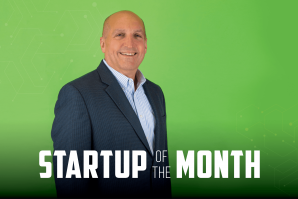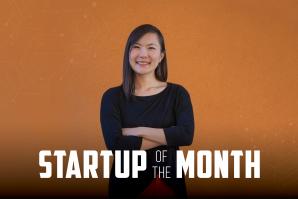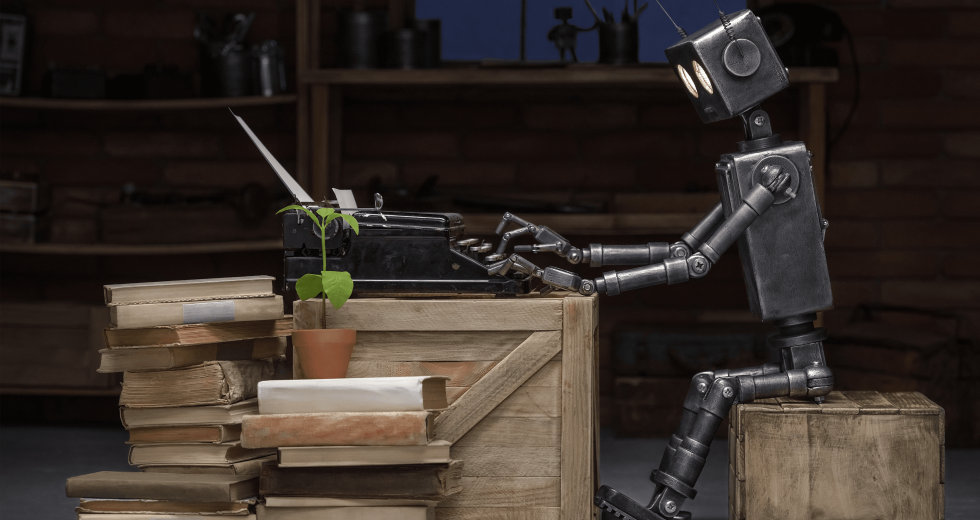I had an interesting experience this week when, out of the clear blue, an anonymous email came through sending me a computer-generated article about our magazine. It was created in ChatGPT and likely was sent to “astound” me. Well, it kind of did. My former editorial board chair, Richard Raisler, had sent me a few articles about ChatGPT, but I still couldn’t quite comprehend how it might work, and indeed, if it did, how it might change the world as we know it and more specifically, change the magazine industry as I know it. The piece used splinters of phrases and topics you might find in one of our stories, and it was actually pretty surprising considering it was written by a robot.
The “article” was titled “Above the Fray: How Comstock’s Magazine is Delivering Straight-Forward Customer-Centered Business Information in a Divisive Political Climate.” It somewhat mimicked the style of our headlines, whose purpose is to intrigue readers enough to spend time reading further.
Next in this make-believe story, it continued: “As the United States grapples with a divisive political atmosphere, businesses across the country are facing challenges in navigating the complexities of interpersonal and political communication. However, amidst this turmoil, there are shining examples of businesses that have found a way to rise above the fray and focus on delivering customer-centered goods and services that meet the needs of their communities.”
Yikes, although still interesting coming from a robot, it’s beginning to sound like someone’s mission statement, albeit seriously dull (plus, were it a real story, it would never pass muster with our editor, Judy Farah, or her editorial team). Actually, before writing this, I asked Judy to weigh in on the ChatGPT piece as I was rather amazed by it. She said, “There are sections of the Chat story that get too opinionated and ‘flowery’ in writing, such as when it says, ‘Comstock’s magazine’s success is its unwavering focus on customer-centered interests.’ In journalism, that’s not what a writer would say. It’s too rah-rah. And that’s what ChatGPT lacks — the human focus.” She’s right.
A friend I shared the story with suggested to me that it was “a festival of cliches.” Liking that choice of words, I have to admit, it is. The U.S. “grapples,” the “political atmosphere” is “divisive,” businesses “are facing challenges,” yet “amidst this turmoil” you can still find “shining examples” of companies that “rise above the fray,” etc. Oh please, my eyes are beginning to gloss over.
Well, that’s enough of that. I say, interesting, but no cigar … but not bad coming from a robot.
There is a current fascination for, and paranoia about, artificial intelligence. It’s not new and it’s gathering huge momentum. My friend Brett Sargent has a Vistage eBlast he sends out, and this week’s said that ChatGPT just passed an MBA exam created by a professor at one of the world’s best business schools: the Wharton School at the University of Pennsylvania. It continues saying, “We’re not going to get the toothpaste back in the tube. This technology is out there and it’s only going to grow. We’ll not be able to go back to the old world.” And did you hear, it was just announced last week that ChatGPT passed the U.S. Medical Licensing Exam. Another yikes!
We’ve used a lot of our God-given human intelligence considering the possibilities of artificial intelligence for a very long time. And AI is supposed to make our lives better in multitudes of ways — I don’t think it should be used to replace the human soul’s creativity, independent thought or religious convictions.
At Comstock’s, we’ll always use living, breathing writers, not robots, for our stories. AI is a unique innovation that seems to be taking off like a rocket with plans to replace many otherwise human-developed work; but in the end, it could spell disaster to lots of today’s industries if we lose sight of the fact that it needs to work for us, not the other way around. And therein is where the rubber might meet the road.
It’s true, AI might take your job away or even demolish the industry you’re in, but let’s not fear yet. While the loss of the buggy whip seems fairly inconsequential in today’s world, back in the day its demise no doubt was both horrifying and disarming. One day, it will likely be the same for AI. Perhaps it could change magazines altogether, but that said, there’ll also be a new iteration that’s better and stronger. People like to pick up a magazine, enjoy its feel, its scent, its personal and personable connection to stories that educate, inform, entertain and even transport you away on a mental adventure while reading. I think there’s a certain element of grace and grandeur to it all, don’t you?
You’ve observed by now that my favorite quote of all time is by Ralph Waldo Emerson, who said, “Nothing great was ever achieved without enthusiasm.” Well, AI will never be sincerely enthusiastic.
What do you think?
Winnie Comstock-Carlson
President and Publisher
–
Stay up to date on business in the Capital Region: Subscribe to the Comstock’s newsletter today.
Recommended For You

Startup of the Month: HuLoop Automation
AI bots streamline workflows to free up human workers from mundane tasks
Too many employees get stuck doing tedious tasks on legacy systems that can impact job satisfaction and the bottom line. This is why Todd Michaud launched HuLoop Automation, a Sacramento-based AI-powered solution to transform the way work gets done.

Startup of the Month: Optimized Foods
Davis company cultivates caviar without harming fish
Optimized Foods, a Davis-based food tech startup, has created a new kind of caviar that is sustainable, nutritious and, most notably, fish-free.
Sponsored

Redefining the Workforce of the Future Through Apprenticeships
Accenture
The Sacramento region continues to be a hot market for talent and workforce development.





